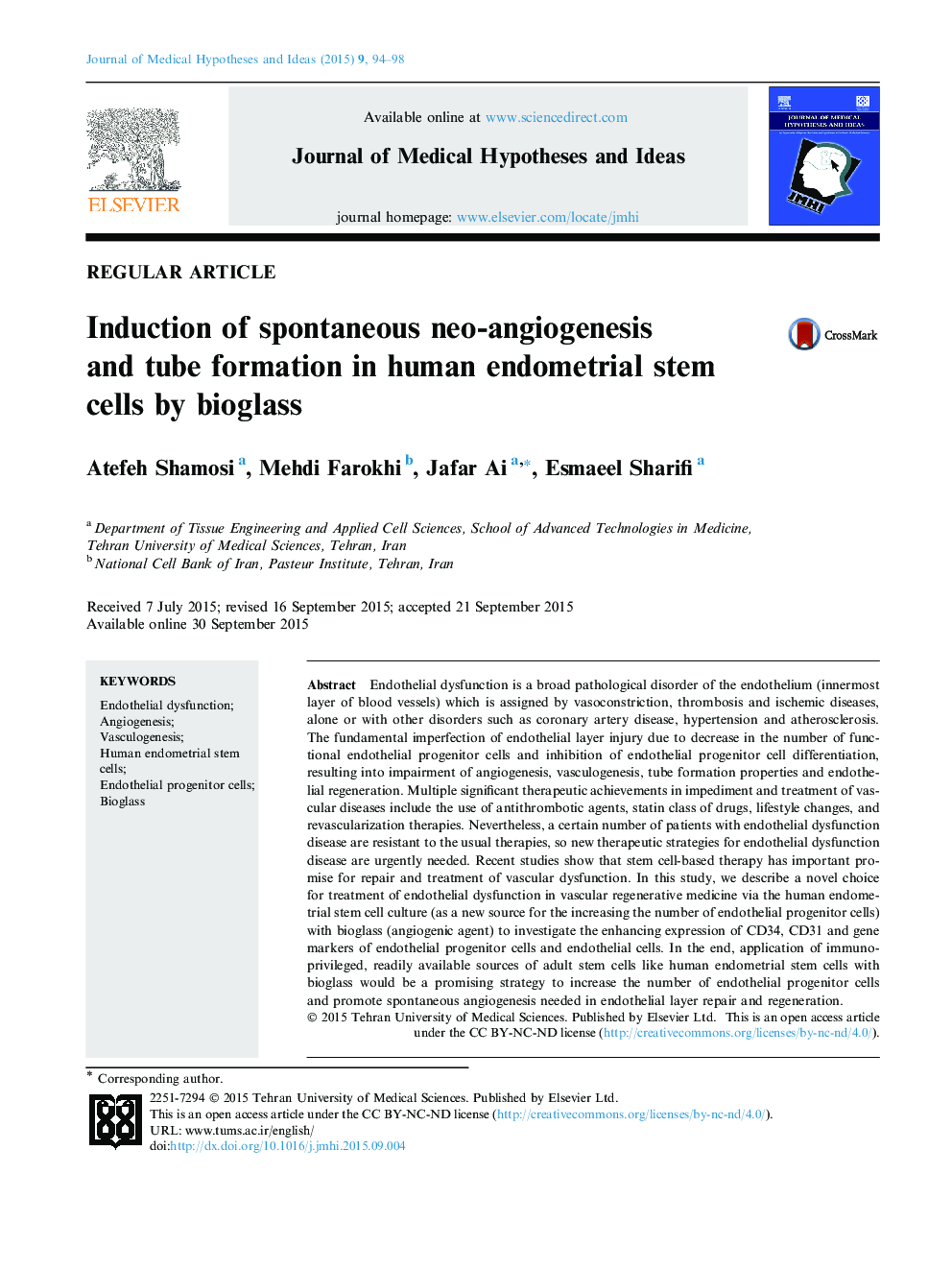| Article ID | Journal | Published Year | Pages | File Type |
|---|---|---|---|---|
| 3482952 | Journal of Medical Hypotheses and Ideas | 2015 | 5 Pages |
•Treatment of endothelial dysfunction is a great challenge with the major goal being the repair of vascular incompetence before it results into immutable tissue damage.•Human endometrial stem cell treated with bioglass extraction could differentiate into endothelial-like cells.•New method for improving of endothelial dysfunction treatment in vascular regeneration is human endometrial stem cell application.•Human endometrial stem cell with bioglass extraction impact on the expression endothelial progenitor cells markers and specific markers in differentiated endothelial cells.•Human endometrial stem cells can increase the number of endothelial progenitor cells, angiogenesis and tube formation.
Endothelial dysfunction is a broad pathological disorder of the endothelium (innermost layer of blood vessels) which is assigned by vasoconstriction, thrombosis and ischemic diseases, alone or with other disorders such as coronary artery disease, hypertension and atherosclerosis. The fundamental imperfection of endothelial layer injury due to decrease in the number of functional endothelial progenitor cells and inhibition of endothelial progenitor cell differentiation, resulting into impairment of angiogenesis, vasculogenesis, tube formation properties and endothelial regeneration. Multiple significant therapeutic achievements in impediment and treatment of vascular diseases include the use of antithrombotic agents, statin class of drugs, lifestyle changes, and revascularization therapies. Nevertheless, a certain number of patients with endothelial dysfunction disease are resistant to the usual therapies, so new therapeutic strategies for endothelial dysfunction disease are urgently needed. Recent studies show that stem cell-based therapy has important promise for repair and treatment of vascular dysfunction. In this study, we describe a novel choice for treatment of endothelial dysfunction in vascular regenerative medicine via the human endometrial stem cell culture (as a new source for the increasing the number of endothelial progenitor cells) with bioglass (angiogenic agent) to investigate the enhancing expression of CD34, CD31 and gene markers of endothelial progenitor cells and endothelial cells. In the end, application of immuno-privileged, readily available sources of adult stem cells like human endometrial stem cells with bioglass would be a promising strategy to increase the number of endothelial progenitor cells and promote spontaneous angiogenesis needed in endothelial layer repair and regeneration.
Graphical abstractFigure optionsDownload full-size imageDownload as PowerPoint slide
